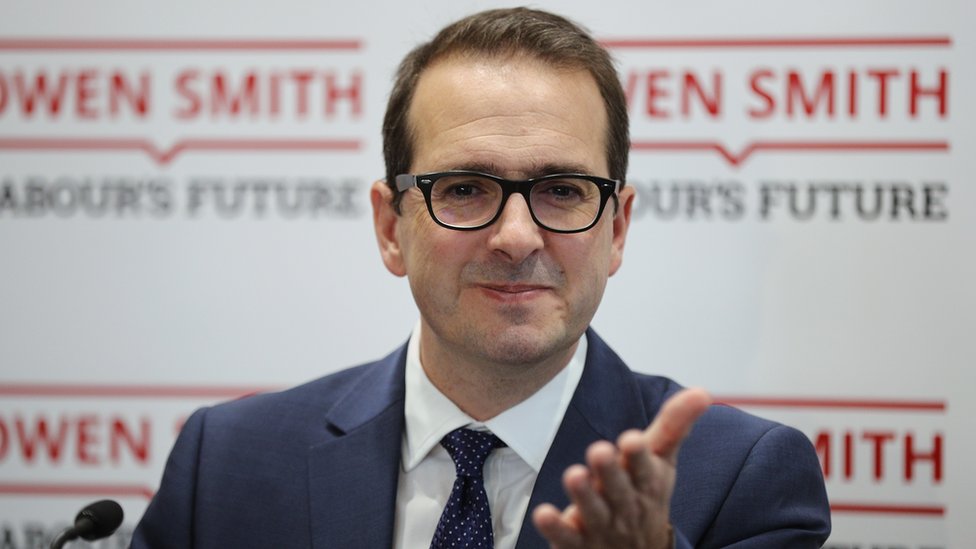Owen Smith’s Political Career

Owen Smith’s political career is marked by his dedication to social justice and his unwavering commitment to the Labour Party. From his early days as a student activist to his time as a journalist and later as a Member of Parliament, Smith has consistently advocated for progressive policies and fought for the rights of ordinary people.
Early Political Career
Smith’s political journey began during his time as a student at the University of Oxford. He was deeply involved in student activism, participating in protests against the Conservative government’s policies and advocating for social justice. This period ignited his passion for politics and laid the foundation for his future career. After graduating, Smith pursued a career in journalism, working for various publications including The Guardian and The Independent. His journalistic experience honed his writing skills, deepened his understanding of political issues, and provided him with a platform to voice his views on social and economic matters.
Rise Within the Labour Party
Smith’s involvement in the Labour Party started with his election as a local councillor in 2004. He served on the council for several years, gaining valuable experience in local government and building a strong network within the party. In 2010, he was elected to Parliament, representing the constituency of Pontypridd. Smith quickly rose through the ranks of the Labour Party, holding various positions within the shadow cabinet, including Shadow Secretary of State for Wales and Shadow Secretary of State for Work and Pensions.
Leadership Style and Political Ideology
Smith is known for his pragmatic and collaborative leadership style. He emphasizes the importance of listening to different perspectives and working together to find solutions. His political ideology is rooted in social democracy, with a strong focus on social justice, economic equality, and public services. Smith believes in the importance of a strong state that provides a safety net for the vulnerable and promotes fairness in society. He is a vocal advocate for policies that address income inequality, promote affordable housing, and invest in education and healthcare.
Owen Smith’s Role in the Brexit Referendum

Owen Smith, a prominent figure in the Labour Party, played a significant role in the 2016 Brexit referendum. He campaigned for the UK to remain in the European Union, advocating for the economic and social benefits of EU membership.
Smith’s Stance on Brexit
Smith, a strong advocate for European integration, believed that leaving the EU would harm the UK’s economy, weaken its global influence, and undermine its social progress. He argued that the EU provided essential economic and social protections, facilitated trade, and promoted peace and stability in Europe. Smith also emphasized the importance of international cooperation and solidarity, which he saw as essential for tackling global challenges like climate change and terrorism.
Smith’s Involvement in the Campaign
Smith actively campaigned for Remain, participating in numerous public events, debates, and media appearances. He sought to highlight the economic and social benefits of EU membership, and countered arguments made by Leave campaigners. Smith also collaborated with other pro-Remain politicians and organizations, working to mobilize support for the Remain campaign.
Impact of the Referendum Result on Smith’s Political Career, Owen smith
The result of the Brexit referendum, with the UK voting to leave the EU, had a significant impact on Smith’s political career. He was seen as a strong advocate for Remain, and the referendum result, which he opposed, significantly impacted his standing within the Labour Party. Smith faced criticism from some within the party who felt that he had not done enough to engage with those who voted to leave. He also faced pressure to clarify his stance on Brexit, particularly in light of the Labour Party’s own internal divisions on the issue.
Comparison of Smith’s Views with Other Labour Figures
Smith’s views on Brexit aligned with those of many prominent Labour figures who also campaigned for Remain. These included figures such as former Prime Minister Tony Blair, former Labour leader Ed Miliband, and several other senior Labour MPs. However, the Labour Party was deeply divided on the issue of Brexit, with some members supporting Leave and others supporting Remain. This division within the party reflected the broader societal divide on Brexit, and contributed to a sense of uncertainty and instability within the Labour Party.
Owen Smith’s Legacy and Impact

Owen Smith’s political career, though relatively short, left a lasting mark on British politics. His commitment to social justice, his willingness to challenge the status quo, and his passionate advocacy for Labour Party values resonated with many, particularly within the party’s left-wing faction. This section explores the contributions Owen Smith made to British politics, the challenges he faced, and the impact of his career on the broader political landscape.
Owen Smith’s Contributions to British Politics
Owen Smith’s political career was marked by a deep commitment to social justice and a belief in the transformative power of Labour Party values. He was a vocal advocate for social equality, economic fairness, and the rights of workers. Smith’s contributions to British politics can be summarized as follows:
- Championing Labour Values: Smith consistently championed Labour’s core values of social justice, economic equality, and community solidarity. He believed in a strong social safety net, a fairer distribution of wealth, and a society that prioritizes the well-being of its citizens.
- Focus on Social Issues: Smith was a passionate advocate for social justice, particularly on issues such as LGBTQ+ rights, women’s rights, and the fight against discrimination. He played a prominent role in promoting these causes within the Labour Party and beyond.
- Advocating for Workers’ Rights: Smith was a staunch defender of workers’ rights and believed in a strong trade union movement. He supported policies that protected workers’ interests and promoted collective bargaining.
Challenges Faced by Owen Smith
Owen Smith’s political career was not without its challenges. He faced significant opposition within the Labour Party, particularly from the left-wing faction, and his leadership bid was ultimately unsuccessful. The challenges he faced included:
- Internal Party Divisions: The Labour Party was deeply divided during Smith’s time as a politician, particularly on issues such as Brexit and the party’s direction. This internal strife made it difficult for Smith to unite the party and effectively lead.
- Opposition from the Left: Smith’s leadership bid was met with opposition from the left-wing faction of the Labour Party, who felt he was not sufficiently committed to their agenda. This opposition ultimately contributed to his defeat in the leadership election.
- The Brexit Referendum: The Brexit referendum was a major political event that deeply divided the Labour Party. Smith’s position on Brexit, which was seen as being too close to the Conservative Party’s stance, alienated some members of the party.
Timeline of Owen Smith’s Career
Owen Smith’s political career can be traced through a series of key events and milestones:
- 2010: Elected as a Member of Parliament (MP) for Pontypridd, Wales.
- 2015: Appointed Shadow Secretary of State for Wales.
- 2016: Contested the Labour Party leadership against Jeremy Corbyn, ultimately losing the election.
- 2017: Resigned from the Shadow Cabinet in protest against Corbyn’s leadership.
- 2019: Lost his seat in the general election.
Owen Smith, a prominent figure in British politics, has often been associated with his commitment to social justice and economic equality. His advocacy for these issues has resonated with many, particularly those who seek a more equitable society. Smith’s dedication to these principles extends beyond political discourse, as evidenced by his interest in the concept of “skinny cow,” a brand that offers low-calorie dessert options.
This interest reflects Smith’s recognition of the importance of balancing indulgence with health consciousness, a theme that is also evident in his political platform.
